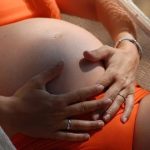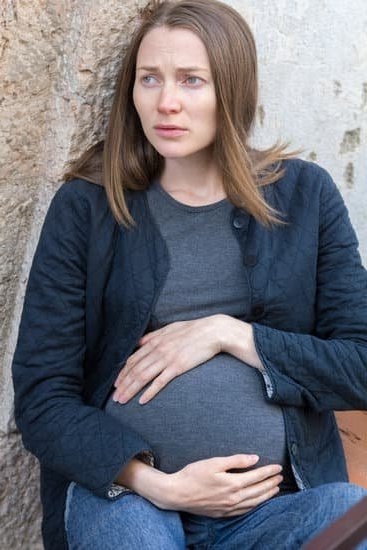When it comes to pregnancy, age is an important factor that can impact both the mother and the baby’s health. But what age is considered geriatric pregnancy? Geriatric pregnancy refers to pregnancies that occur in women who are 35 years or older. While this term may sound alarming, advances in healthcare have made it more common for women to have children later in life.
As women delay starting a family for various reasons such as career goals, financial stability, or finding the right partner, geriatric pregnancies have become more prevalent. However, there are certain misconceptions associated with geriatric pregnancies that need to be addressed. Contrary to popular belief, it is possible for women in their late thirties and beyond to have healthy pregnancies and deliveries with proper medical care and support.
Despite the challenges that may come with geriatric pregnancies, there are also benefits of being an older parent. Older parents tend to be more emotionally stable and financially secure, which can provide a stable environment for raising children. Additionally, older parents may have more life experience and wisdom to pass on to their children, contributing to a more enriched upbringing.
Definition of Geriatric Pregnancy
Geriatric Pregnancy typically refers to pregnancies that occur in women who are 35 years of age or older. However, the term itself can be misleading as it may imply advanced age or declining health, which is not always the case for women in this age group.
Advanced maternal age is another term used interchangeably with geriatric pregnancy. While there are certain risks and challenges associated with being pregnant at an older age, many women in their late thirties and forties have successful pregnancies and healthy babies.
Women who are considering pregnancy later in life should be aware of the potential health risks involved. Older mothers have a higher risk of developing conditions such as gestational diabetes, high blood pressure, preeclampsia, and chromosomal abnormalities in the fetus, such as Down syndrome. It is important for women planning a geriatric pregnancy to work closely with their healthcare provider to monitor and manage these potential risks throughout the pregnancy.
Despite the health risks associated with geriatric pregnancies, there are also benefits to becoming a parent at an older age. Older parents often have more life experience, emotional maturity, financial stability, and established careers or relationships.
Research has shown that children born to older parents may benefit from their parents’ wisdom and stable family environment. Ultimately, the decision to have a child at an older age is personal and depends on various factors unique to each individual or couple experiencing a geriatric pregnancy.
| Geriatric Pregnancy Risks | Benefits of Being an Older Parent |
|---|---|
| Increased risk of gestational diabetes | More life experience and emotional maturity |
| Higher chance of high blood pressure or preeclampsia | Financial stability for raising a child |
| Risk of chromosomal abnormalities in the fetus | Potential for providing a stable family environment |
Common Misconceptions About Geriatric Pregnancy
Advanced Age Means Complications
One common misconception about geriatric pregnancy is that advanced maternal age automatically means complications during pregnancy. While it is true that older women may face higher risks for certain health issues, such as gestational diabetes or high blood pressure, not every older pregnant woman will experience these complications. With proper prenatal care and monitoring, many women over a certain age can have healthy pregnancies and deliveries.
Concerns About Parenting Abilities
There is also a misconception that older parents may not have the energy or ability to keep up with their children, especially during the teenage years. However, research has shown that older parents often bring a level of stability, wisdom, and patience to parenting that can benefit their children. Age does not necessarily dictate one’s ability to be an effective parent, and many older parents find great joy in raising children at this stage in their lives.
Social Stigma Surrounding Geriatric Pregnancy
Another misconception about geriatric pregnancy is the societal judgment often placed on women who choose to have children later in life. Older mothers may face criticism or scrutiny from others who believe they are too old to become parents.
It is important to recognize that every individual’s journey to parenthood is unique, and age should not be a determining factor in whether someone can successfully raise a child. The focus should be on the love and care provided to the child rather than the age of the parent.
Health Risks Associated With Geriatric Pregnancy
Becoming pregnant at an older age, particularly after the age of 35, can come with increased health risks for both the mother and the baby. It is important for women who are considering pregnancy later in life to be aware of these potential complications and to consult with their healthcare provider for a personalized assessment. Some of the health risks associated with geriatric pregnancy include:
- Higher risk of gestational diabetes: Women who are older when they become pregnant are more likely to develop gestational diabetes, which can impact both maternal and fetal health.
- Increased chance of hypertension: Older pregnant women may have a higher likelihood of developing high blood pressure during pregnancy, which can lead to complications such as preeclampsia.
- Greater risk of chromosomal abnormalities: Advanced maternal age is associated with an increased risk of chromosomal abnormalities in the baby, such as Down syndrome.
In addition to these risks, geriatric pregnancies may also be more likely to require medical interventions such as cesarean sections or inductions. It is crucial for older mothers-to-be to maintain regular prenatal care and closely monitor their health throughout the pregnancy to minimize these risks and ensure a healthy outcome for both mother and baby.
Fertility Challenges for Older Women
Women who are considering pregnancy at an older age may face some unique challenges when it comes to fertility. While the term “geriatric pregnancy” is commonly used to describe pregnancies in women over the age of 35, it is important to note that fertility actually begins to decline after the age of 30. This decline becomes more pronounced as women reach their late 30s and early 40s, making it more difficult to conceive naturally.
One of the main reasons for fertility challenges in older women is the decrease in the number and quality of eggs available for fertilization. As women age, the ovaries contain fewer viable eggs, which can impact their ability to become pregnant. Additionally, older women may also have a higher risk of miscarriage due to chromosomal abnormalities in the eggs.
Despite these challenges, there are fertility treatment options available for older women who are struggling to conceive. Assisted reproductive technologies such as in vitro fertilization (IVF) can help increase the chances of pregnancy by using donor eggs or other techniques. It is important for women considering pregnancy at an older age to consult with a fertility specialist to explore all available options and create a personalized treatment plan that suits their needs.
| Geriatric Pregnancy Risk Factors | Prevalence |
|---|---|
| Decreased egg quantity and quality | Increases with age |
| Higher risk of chromosomal abnormalities | More common in older women |
Benefits of Being an Older Parent
As women age, the idea of becoming a parent may come with some concerns and uncertainties. However, there are also many benefits to consider when embarking on parenthood later in life. Here are some advantages of being an older parent:
- Financial Stability: Older parents may have established their careers and financial stability, providing a secure foundation for raising a child.
- Life Experience: With age comes wisdom and life experience, which can benefit both the parent and the child in terms of decision-making, problem-solving, and emotional maturity.
- Perspective: Older parents often have a different perspective on parenting compared to younger parents. They may be more patient, understanding, and better equipped to handle the challenges that come with raising a child.
In addition to these benefits, studies have shown that children born to older parents tend to perform better academically, have fewer behavioral issues, and exhibit stronger social skills. While there are certainly challenges associated with geriatric pregnancies, such as increased risk of certain health conditions or complications during pregnancy and childbirth, it is important to acknowledge the positive aspects as well.
Ultimately, the decision to become a parent at an older age is a personal one that should take into consideration individual circumstances and preferences. With the right support system in place and proper medical care throughout the pregnancy journey, many older parents find immense joy and fulfillment in welcoming a child into their lives later on.
Medical Care and Support for Geriatric Pregnancies
As women age and decide to embark on the journey of motherhood, they may encounter unique challenges and considerations when it comes to medical care and support during their pregnancy. The term “geriatric pregnancy” is often used to describe pregnancies in women who are over the age of 35. However, it is important to note that this term is outdated as age alone does not determine a woman’s ability to have a healthy pregnancy.
Age Is Just a Number
While advanced maternal age may increase the risk of certain complications during pregnancy, it is not a one-size-fits-all definition of high-risk. Women in their late 30s and beyond can still have healthy pregnancies with the proper medical care and support. It is essential for older expectant mothers to work closely with their healthcare providers to ensure they receive appropriate prenatal care tailored to their specific needs and health history.
Specialized Care for Older Moms
Women who are considered geriatric pregnancies may benefit from specialized care from healthcare providers who have experience in managing pregnancies in older women. This may include more frequent prenatal visits, additional screenings for genetic conditions, monitoring for gestational diabetes or high blood pressure, and other interventions as needed. Having a supportive healthcare team can help alleviate some of the anxieties that older moms-to-be may face during their pregnancy journey.
Tips for a Healthy Geriatric Pregnancy
As women delay starting families for various reasons, the age at which women choose to have children continues to rise. However, there comes a point where advanced maternal age may bring increased risks and challenges during pregnancy. The question often asked is: What age is considered geriatric pregnancy? In medical terms, a geriatric pregnancy refers to pregnancies in women who are 35 years or older.
Women who decide to have children later in life may face unique health considerations during pregnancy that younger mothers may not experience. Some of the common health risks associated with geriatric pregnancies include gestational diabetes, high blood pressure, preeclampsia, and chromosomal abnormalities in the baby such as Down syndrome.
It’s important for women in this age group to be aware of these risks and work closely with their healthcare provider to monitor and manage any potential complications throughout the term.
To ensure a healthy geriatric pregnancy, it is essential for older expectant mothers to maintain a well-balanced diet rich in nutrients, stay physically active with exercises approved by their healthcare provider, get regular prenatal check-ups, and avoid harmful substances like tobacco and alcohol. Additionally, taking prenatal vitamins containing folic acid can help prevent birth defects and ensure both mother and baby are getting essential nutrients.
By following these tips and staying informed about their pregnancy, older mothers can increase their chances of having a healthy pregnancy.
Conclusion and Encouragement for Older Moms-to-Be
In conclusion, the age at which a pregnancy is considered geriatric typically begins around the age of 35 and older. While there are certainly risks and challenges associated with conceiving a child later in life, it’s important for older moms-to-be to remember that they are not alone in their journey. With advancements in medical care and support specifically tailored for geriatric pregnancies, women can still have successful pregnancies and healthy babies even at an older age.
It is crucial for older moms-to-be to prioritize their health before and during pregnancy. This includes seeking proper medical care, maintaining a healthy lifestyle, and being aware of the potential risks that may come with advancing maternal age. By staying informed and proactive in their healthcare, older women can increase their chances of having a smooth pregnancy and delivery.
Lastly, it’s essential for older moms-to-be to remember that age is just a number when it comes to starting or expanding their families. While there may be challenges along the way, there are also many benefits to being an older parent, such as increased emotional maturity, financial stability, and wisdom gained from life experiences.
So if you find yourself embarking on the journey of a geriatric pregnancy, embrace it with confidence and optimism knowing that you have the strength and resilience to navigate this unique chapter in your life.
Frequently Asked Questions
Is Pregnancy After 30 Geriatric?
Pregnancy after 30 is not considered geriatric. While the term “geriatric pregnancy” was previously used for pregnancies over the age of 35, it’s now been replaced with “advanced maternal age.” Women in their 30s can still have healthy pregnancies and babies.
Why Is Pregnancy After 35 High Risk?
Pregnancy after 35 is considered high risk due to increased chances of certain complications, such as chromosomal abnormalities like Down syndrome, miscarriage, gestational diabetes, preeclampsia, and difficulties with fertility. Prenatal care is crucial for managing these risks.
Is 35 Too Old to Have a Baby?
At 35 years old, a woman is not too old to have a baby. Many women are choosing to start families later in life for various reasons such as career development or personal circumstances. Consulting with a healthcare provider can help assess individual risks.

Welcome to my fertility blog. This is a space where I will be sharing my experiences as I navigate through the world of fertility treatments, as well as provide information and resources about fertility and pregnancy.





